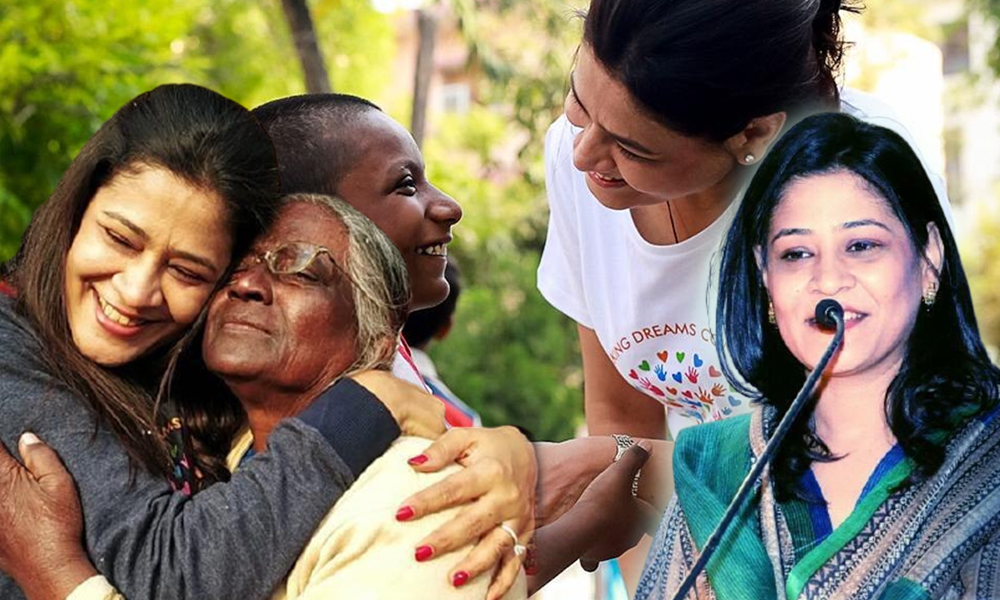
Delhi
This Delhi-Based NGO Is Helping Marginalised Communities Tide Over COVID-19 Crisis
 |
|Wishes and Blessings, founded in 2014, has been working across age, caste, gender, economic and social status on its wish-fulfillment initiatives.
Delhi-based NGO, Wishes and Blessings, is on a mission to be the go-to social organisation acting as a bridge between two sets of people— ones that need help and then the ones that can actually offer help.
Living up to its name, quite literally, this organisation works towards fulfilling the 'wishes' of the underprivileged; earning 'blessings' as the return on its investment.
"It has not just been a connecting platform for donors and beneficiaries. It is about building a community based on trust, sustainable long-term relationships, and the one yielding results," Dr Geetanjali Chopra, founder of Wishes and Blessings tells The Logical Indian.
The aspect that stands out about the organisation is that it works across age, caste, gender, economic and social status on its wish-fulfilment initiatives.
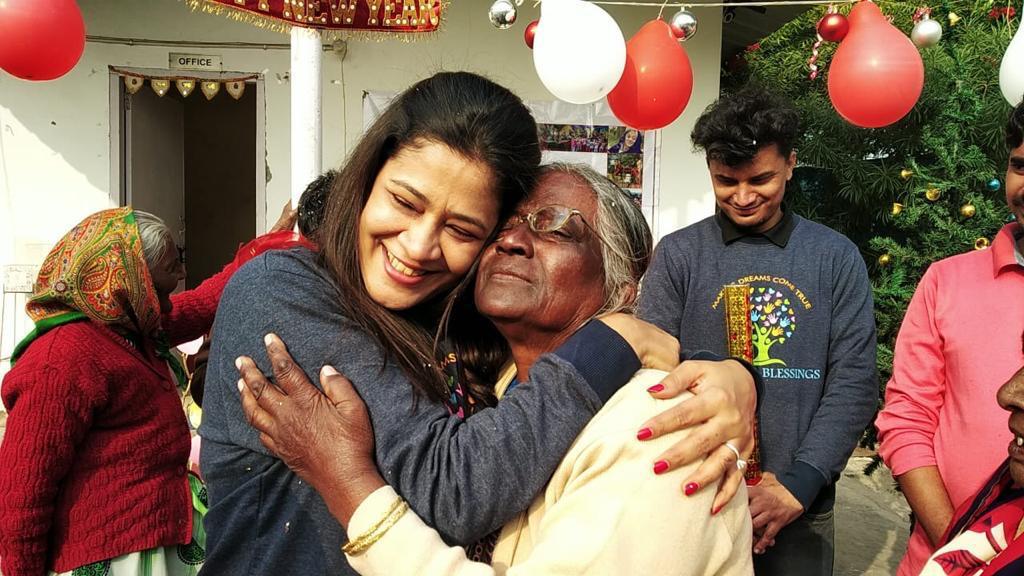
"Any person can have a wish and the wish could be to have anything. So, we never limited our vision to a specific community. Our oldest beneficiary is a 106-year-old living in Vrindavan," explains the founder.
Wishes and Blessings, founded in 2014, has been working towards addressing six main social concerns which include education (formal and informal), elderly care (shelter home with free basic quality amenities), nutrition (providing free daily meals to the less privileged), relief measures (conducting seasonal relief programs), Happiness on the way project (projects for the specially-abled) and customised charity (tailor-made initiatives to suit the needs of the donors to ensure guaranteed help).
With success in her professional life, things were smooth-sailing for the doctor. However, she says she always felt a void, a 'satisfaction' factor missing in her life.
Recounting the incident that brought a major switch in the perspective and gave her a sense of direction, Dr Geetanjali says, "It was my eighth birthday. My grandfather followed a tradition of making the kids in our family visit and celebrate our special days with the visually impaired children. This particular time, one of the kids came up to me, pulled my dress, and asked 'Mera birthday kab aayega?' (When is my birthday?) and I had no answer."
"Birthdays are the most obvious days of celebration and the thought of so many children not even knowing when they were born stayed with me while I was growing up."
The doctor recalls that several years later, after her grandfather's demise, she went back to the same bunch of children to celebrate his birth anniversary. Towards the end of the celebrations, she asked if they had any wish.
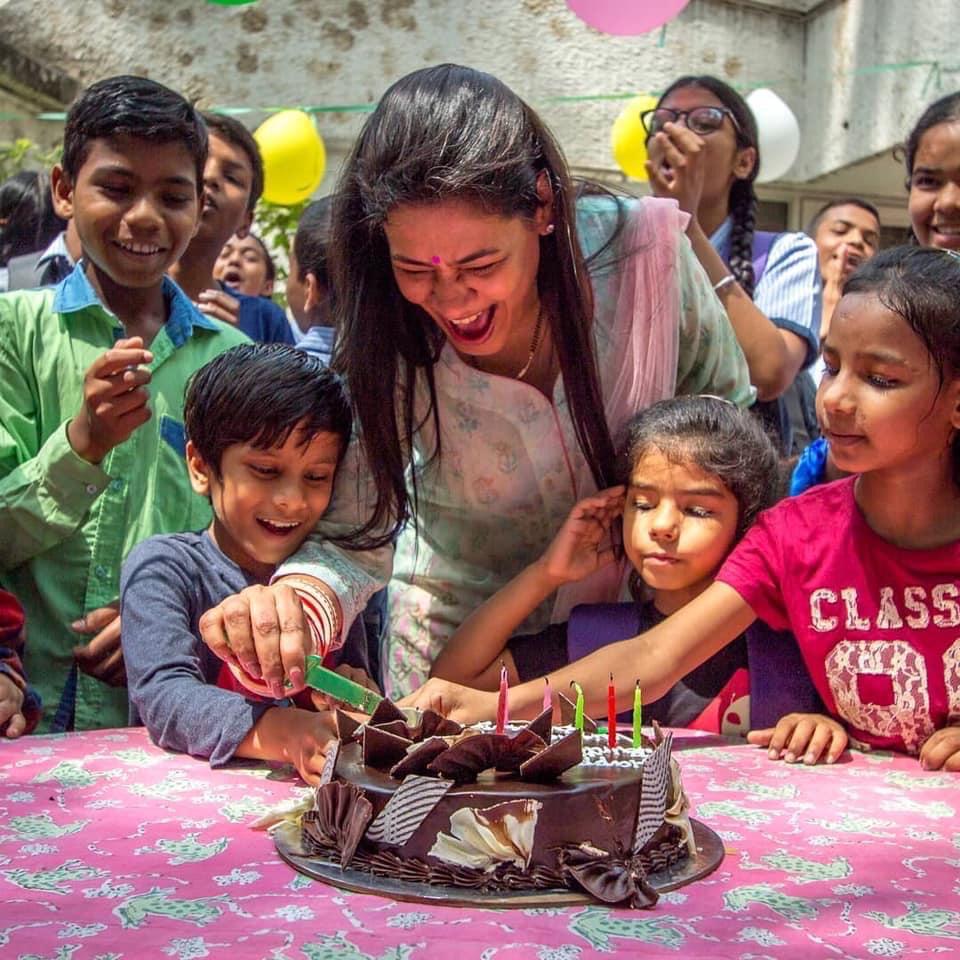
"They said we want to play Holi. I was perplexed since these were visually impaired children wanting to play Holi. The next day, at the office, I sent an email to my colleagues asking them for suggestions. After a little while, to my surprise, my work-desk was brimming with envelopes containing money. One of them had a note that said 'we are here to make their wishes come true'. It is an incident that is going to be forever etched in my memory," she tells The Logical Indian.
Dr Geetanjali continues to tell that with the contributed money she arranged for the colours, pichkari, and food items while a few from her office volunteered to help during the process.
"It is strange but the visually impaired gave me a vision for life. Seeing those happy faces gave me an unadulterated feeling of joy that cannot be compared to any corporate success. It inspired me," she remembers.
Detailing about the issues, the founder says efforts are directed towards providing both formal and informal education to the underprivileged children. Formal includes finding the right bunch of children who need assistance and helping them get enrolled in government-run schools. Additionally, the investment towards their schooling is taken care of and the team also tutors such students to help them with lessons. Informal, on the other hand, is picking children from vulnerable communities like the street children who have to resort to begging for survival. These kids are trained with basic life skills including lessons on cleanliness, grooming, and the importance of education.
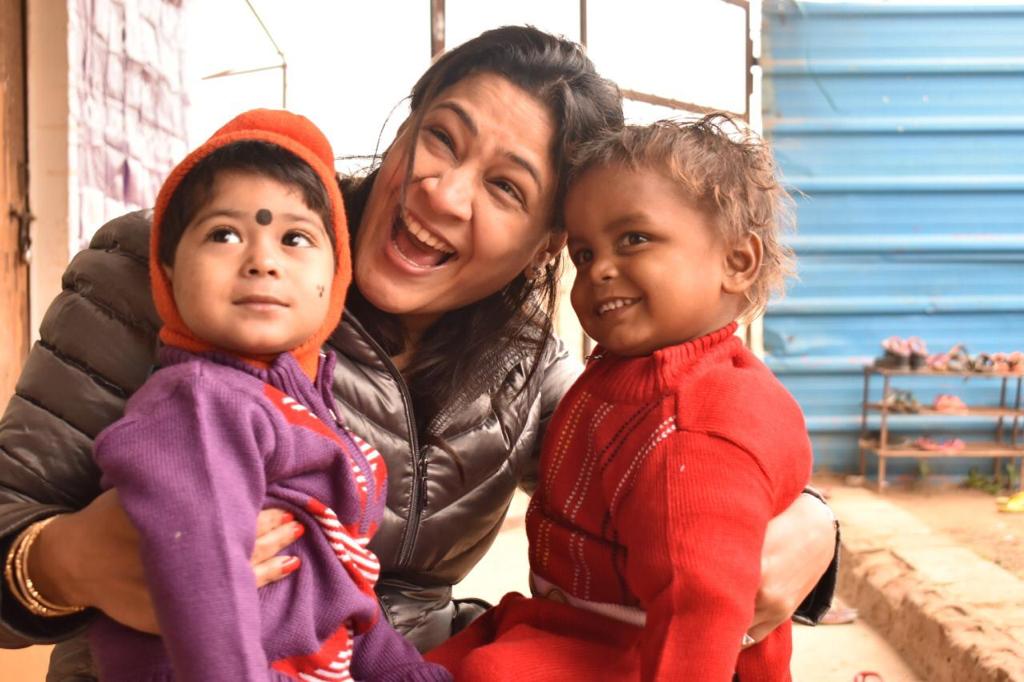
Meanwhile, with 'Mann Ka Tilak', the shelter home for the elderly, the team works towards ensuring a happy life for the senior citizens. Providing appropriate nutritious diet, medicines and other medical amenities is part of the activities.
Dr Geetanjali's team has been proactively running meal programs for the disadvantaged. It provides home-cooked nutritious meals, three times a day, to the needy in the national capital. Currently, they are serving at least 1000 people free meals every day amid the coronavirus-induced pandemic
Paying attention to the specially-abled has been one of the priorities in her list and with the 'Happiness on the way' project, the socialpreneur conducts specially crafted initiatives for such communities. It includes donation drives, celebrating special occasions or festivities, and so on. Lastly, to make sure that the donors are able to find the right kind of initiatives, the team runs a 'customised charity' program.
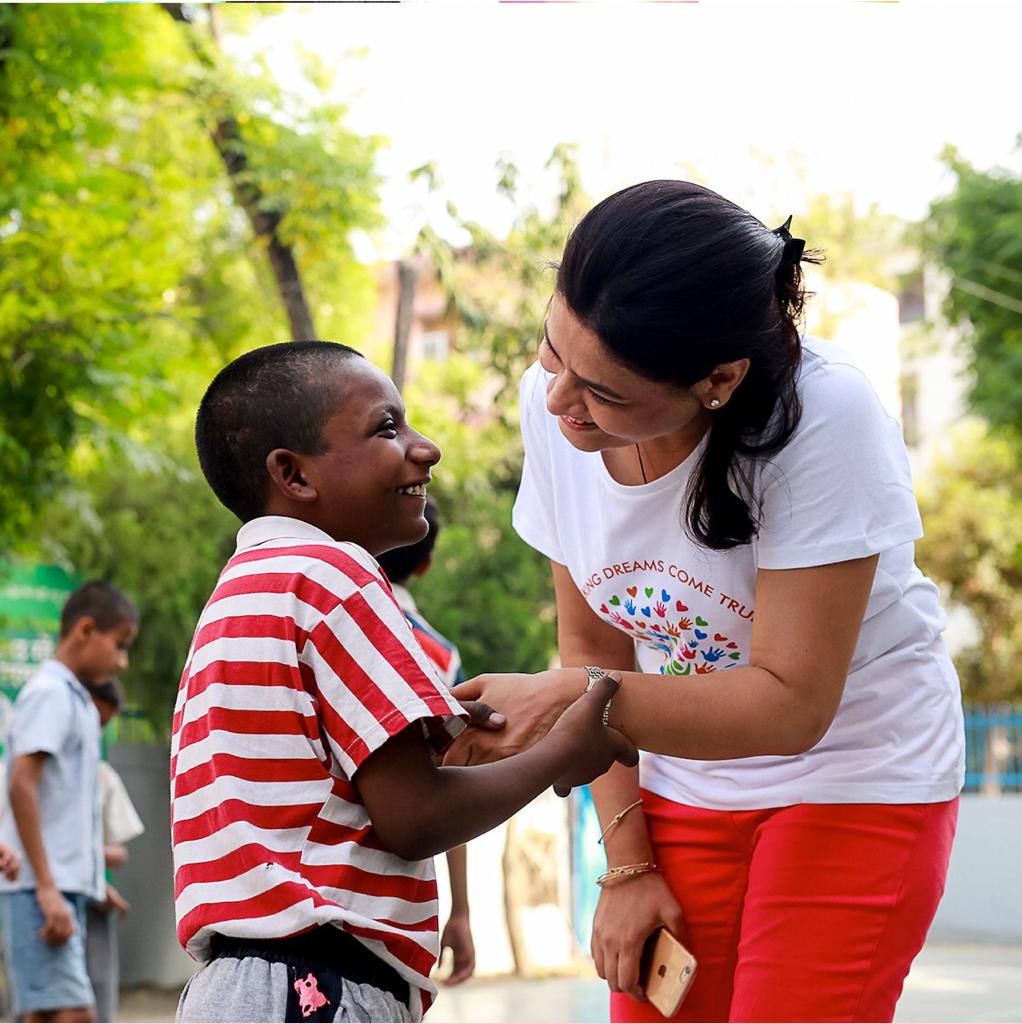
Turning conversation towards the challenges, she says, "Trust deficit is the biggest concern. Not just the donors, but the beneficiaries also have trust issues."
"My team was helping to provide aid to one of the schools. We arranged food, study material, and everything that was needed, meanwhile, the principal of the school suspected me of a motive. She was impolite and on confronting her, she asked me if I was expecting something in return which was beyond my comprehension," explains the doctor.
She further adds that finding the right kind of people aiming for a long term commitment to such activities is also one of the problems.
"The social sector is not a well-paying job. It is difficult to find motivated and sincere people to join your team. There are alternative jobs that satisfy the financial-quotient and there's a perception that social work is a part-time job. There's a serious dearth of talented individuals who can bring tremendous positive change into the society.
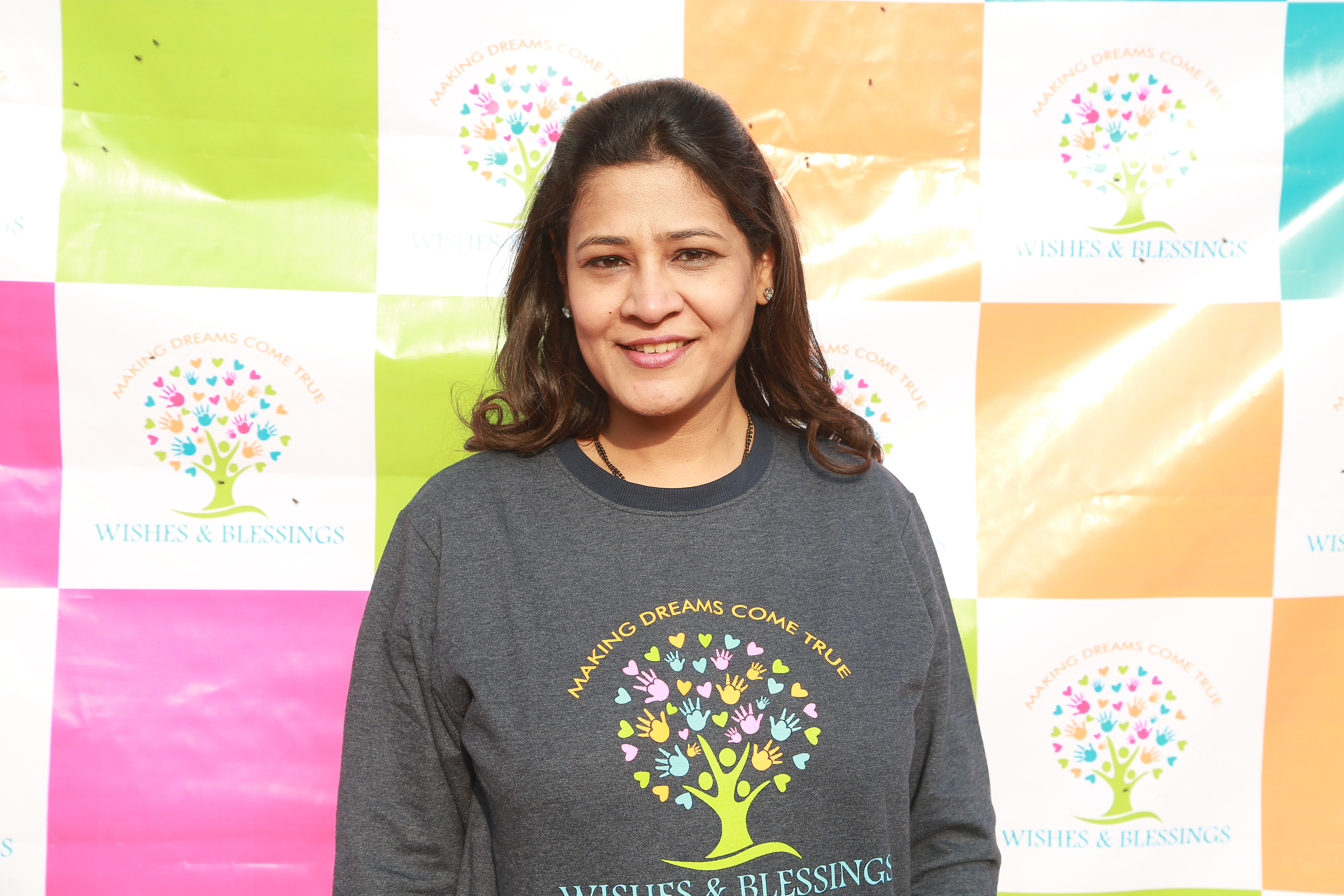
I also feel that there are a lot of roadblocks for organisations working in this sector. Administrative setbacks are demotivating. There is no consistent flow of funding which adds to the barriers. Especially during COVID, the flow of funds stagnated, stalling several projects." she says.
Answering how the coronavirus pandemic affected their projects, Dr Geetanjali says, "Fortunately, the COVID-19 lockdown acted like a silver lining for my team. It definitely had its challenges but we focussed on the lessons. With an organisation that was providing service to the community in one city, we expanded our operations to seven states. We were mobilizing teams with the local grassroots level workers in states including Assam, Delhi, Jharkhand, Maharashtra, Uttar Pradesh, Uttarakhand, and West Bengal to provide necessary aid during the lockdown."
"The CSR (Corporate Social Responsibility) activities took a hit since the companies started pulling out of the agreements for lack of funds. Although a number of projects were impacted, we also got to invest our attention and funds to the marginalised communities actually affected due to the outbreak. Providing meals to the needy, transgender community, and also ensuring medical aid to them were prioritized," she adds.
On being asked about her message to the young generation of social changemakers, Dr Geetanjali says, "Follow our heart but listen to your brain. People who aim to join the social sector should not view their work as gap fillers. It must not be for a short period of time, since people and their lives are involved, it is a responsibility and the commitment towards it should be perpetual. The contentment of serving the community is always going to surpass the perks offered by corporates."
Also Read: With 'Happy To Bleed' Mantra, This Socialpreneur Is Educating Masses On Menstrual Hygiene Management